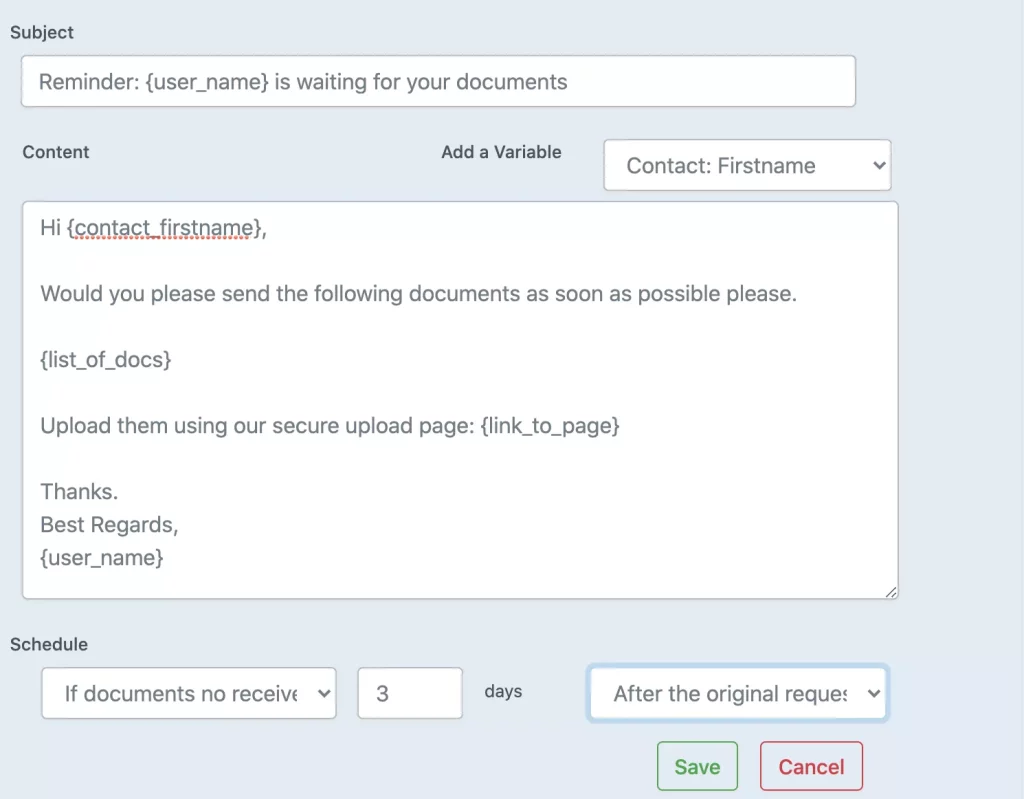Prospective landlords need to be diligent in their tenant screening process to ensure that they find the best possible renters for their properties.
One of the most important steps in this process is asking effective tenant screening questions during the application and interview process. By asking the right questions, landlords can gain valuable insight into a prospective tenant’s background, financial stability, and overall suitability for the property.
When it comes to tenant screening questions, there are a few key areas that landlords should focus on. These include questions about the applicant’s income and employment status, rental history, and any criminal or credit issues that may impact their ability to pay rent or be a good renter.
By asking targeted questions in each of these areas, landlords can get a more complete picture of the applicant and make an informed decision about whether to approve them for the rental property.
Understanding Tenant Screening
Importance
Tenant screening is a critical process that landlords and property managers must undertake before approving potential renters. A reliable and secure tenant screening process helps to identify the best tenants who are likely to pay rent on time, take care of the property, and follow the rules of the lease agreement.
Effective tenant screening questions can help landlords to assess a potential tenant’s financial stability, rental history, and overall suitability for tenancy.
Legal Considerations
While tenant screening is an essential part of the leasing process, landlords must also be aware of the legal considerations involved. Discrimination is a serious concern in tenant screening, and property owners must comply with the Fair Housing Act and other anti-discrimination laws.
Lessors must be careful not to discriminate against tenants based on protected classes such as race, color, religion, national origin, sex, familial status, and disability. It is essential to use objective criteria and avoid asking questions that could be interpreted as discriminatory or invasive.
Questions To Ask Potential Renters in your Rental Application form
A pre-screening survey can be a valuable tool to gather information about potential renters before beginning the formal application process. This survey can include questions about the renter’s employment history, rental history, and any pets they may have.
By gathering this information upfront, landlords can quickly identify potential red flags and avoid wasting time on renters who are not a good fit for the property.
Financial Qualifications
When screening potential renters, it’s important to ensure that they have the financial means to pay rent on time each month. This section will cover two key aspects of financial qualifications: verifying income and employment, and analyzing credit history.
Monthly Income and Employment
To ensure that a potential renter has steady employment and sufficient monthly income to pay rent, lessors should ask for the following information
Questions to ask new renters:
-
- What is your current employer and job title?
- How long have you been employed at your current job?
- What is your monthly income?
- Do you have any additional sources of income? If so, please specify.
- Can you provide proof of income, such as recent pay stubs or bank statements?
Owners can also ask for proof of income, such as recent pay stubs or bank statements. This can help verify that the potential renter has a steady source of income.
Credit History Analysis
Analyzing a potential renter’s credit history can provide valuable insight into their financial responsibility. Landlords should ask for permission to run a credit check and review the following information.
Ask prospective tenants:
- What is your current credit score?
- Can you provide a copy of your credit report?
- Have you ever filed for bankruptcy? If so, when?
- Do you have any outstanding debts or missed payments?
- Have you ever had a loan or credit card go into collections?
A credit score of 700 or above is generally considered good, while a score below 600 is considered poor. Landlords should also review the potential renter’s credit report for any missed payments or outstanding debts. If the potential renter has a history of bankruptcy, landlords may want to ask for additional information to ensure that they will be able to pay rent on time.
Rental History and Former Landlord References
One of the most crucial aspects of tenant screening is evaluating a potential renter’s rental history. A thorough investigation of a tenant’s rental history can provide valuable insights into their behavior as a tenant. Landlords should ask questions about the tenant’s previous rental property, the length of their stay, and whether they paid rent on time.
Additionally, landlords should inquire about the tenant’s reasons for moving. This can help landlords determine if the tenant is likely to stay long-term or if they have a history of frequently moving. If a tenant has a history of moving frequently, it may indicate that they are not a reliable tenant.
Another important aspect of evaluating rental behavior is to check for any prior evictions. Landlords should ask potential tenants if they have ever been evicted and the reason for the eviction. If a tenant has been evicted in the past, it may indicate that they are not a responsible tenant and may not pay rent on time.
Checking References
Checking references is another essential aspect of tenant screening. Landlords should ask for references from previous landlords and the tenant’s current landlord, if applicable. These references can provide valuable insights into the tenant’s behavior, such as whether they paid rent on time, their cleanliness, and whether they caused any damage to the property.
When checking references, landlords should ask specific questions about the tenant’s behavior and rental history. It is also important to verify that the references are legitimate and not fake. Landlords can do this by verifying the contact information and asking for additional documentation, such as a lease agreement or utility bill.
Run a Background Check
When screening potential tenants, conducting a background check is an essential step in the process. It helps landlords to verify the information provided by the tenant and assess their risk level. A background check typically includes criminal history, credit history, and eviction history.
Criminal Background Screening
One of the most critical aspects of a background check is a criminal background screening. Landlords want to ensure that they are renting to tenants who do not pose a risk to other tenants or the property. A criminal background check can reveal any prior convictions, charges, or pending cases.
Questions to ask potential tenants:
- Have you ever been convicted of a crime? If so, please provide details.
- Are there any criminal charges currently pending against you?
- Have you ever been arrested? If yes, what was the outcome?
- Have you ever been involved in any legal disputes or lawsuits?
- Have you completed any rehabilitation programs?
It is important to note that not all criminal records automatically disqualify a tenant. Landlords need to consider the nature of the offense, how long ago it occurred, and whether the tenant has demonstrated rehabilitation. However, if a tenant has a history of violent crimes or drug offenses, it may be best to decline their application.
Understanding Eviction Records
Another important aspect of a background check is an eviction record. This record shows whether the tenant has been evicted in the past and for what reason. It can also indicate if the tenant has a history of late rent payments or other issues.
- Have you ever been evicted? If so, please provide details.
- Have you ever had a lease terminated by a landlord?
- Have you ever been taken to court by a landlord?
- Have you ever left a rental property before the end of the lease term?
- Have you ever had any disputes with previous landlords?
Landlords should be aware that some tenants may have been evicted due to circumstances beyond their control, such as job loss or medical issues. However, if a tenant has a history of multiple evictions or has been evicted for damaging property, it may be best to decline their application.
Property-Specific Concerns
When it comes to renting a property, there are certain property-specific concerns that landlords should take into consideration before approving a potential tenant. These concerns include pet and smoking regulations, parking, and occupancy limits.
Pet and Smoking Regulations
Pets and smoking are two common issues that landlords face when renting out their properties. While some landlords allow pets and smoking, others have strict regulations in place to protect their property and other tenants.
Some screening questions to ask new tenants:
- Do you have any pets? If so, what kind and how many?
- Are you willing to comply with the property’s pet policy, including any pet deposits or fees?
- Do you or any of your household members smoke?
- Are you willing to comply with the property’s smoking policy, including designated smoking areas?
- Have you ever had any issues with pets or smoking in previous rentals?
It is important for landlords to clearly communicate their pet and smoking policies to potential renters before approving their application. Landlords should also include these policies in the lease agreement to ensure that tenants are aware of the rules and regulations.
Parking and Occupancy Limits
Parking and occupancy limits are also important property-specific concerns that landlords should consider before approving a potential tenant. Landlords should clearly communicate the number of parking spaces available and any restrictions on parking to potential renters.
- How many vehicles do you own?
- Do you require additional parking spaces beyond what is provided?
- Are you aware of any parking restrictions in the area?
- How many people will be living in the rental property?
- Are you aware of the occupancy limits for this property?
Occupancy limits should also be clearly stated in the lease agreement to ensure that tenants are aware of the maximum number of people allowed to live in the property. This can help prevent overcrowding and potential damage to the property.
Automating Tenant Screening Process with File Request Pro
In today’s digital age, landlords and property managers have access to various digital tools that can simplify the tenant screening process. Online forms and data collection tools are just a few examples of how technology can help make the tenant questionnaire collection process more efficient.

One such tool is File Request Pro, which allows landlords to create a questionnaire form and automate a reminder email sequence. This can save a lot of time and effort by not having to follow up with tenants manually. Additionally, files are automatically synced to Google Drive or OneDrive, making file organization automatic.

File Request Pro stands out as a robust onboarding automation software that streamlines document collection and management. Tailored for efficiency, it provides a seamless onboarding experience. It makes it easy for landlords to be precise about what files and information they need to gather. It is easier to guide tenants to upload the correct content with a smart user interface, rather than chasing them after they’ve already sent the files.